Tragic death: ‘He stopped being Nathan then and there’
THE call from the hospital and doorknocks from cops came in fast succession. Karin Kinny needed to get to the hospital, fast.
THE phone calls from the hospital social worker and knocks on the door from police came in quick succession.
Rob Kinny, 61, was the only parent home when he was told that his youngest son, Nathan, then 22, had been in a terrible accident, nearby in Sydney’s northern suburbs.
“They were asking if we had a son called Nathan,” Mr Kinny said.
“I said ‘yes’ and they said ‘well he’s at Royal North Shore (RNS) hospital and we think you better go there pretty quickly’.”
Mr Kinny called his wife Karin, 57, a clinical nurse, to let her know they had to get to the casualty ward of RNS hospital, fast.
“I knew Nathan was in a lot of trouble,” Ms Kinny told news.com.au.
She was right. Earlier that day, in October 2013, Nathan was riding his motorbike to work through the northern Sydney suburb of Willoughby when a van suddenly turned in front of him.
“He hit the van side on … and he stopped being Nathan about then and there,” Mr Kinny said.
“The ambulance (workers) were wonderful, they got there and kept him going, and brought him to RNS.”
Doctors soon determined that Nathan had a “catastrophic brain injury” and “wasn’t going to go forward”.
“They did all the X-rays and everything they could for him, but ultimately came the time where they came to us and told us that it was all going to end,” Mr Kinny said.
Their heads spinning and hearts shattering, the Kinnys were suddenly forced to say goodbye to the youngest of their three children, but they had one important decision to make first.
“We were then very carefully and compassionately asked if we’d consider him to be an organ donor,” Mr Kinny said.
“And we were lucky enough to know the answer to that.”
SIGN UP NOW: To become a registered organ donor, click here
Just a couple of months earlier, Nathan had renewed his driver’s licence and “ticked the box” to register as an organ donor.
“He didn’t just do it on a whim, he did it thoughtfully and told us and his girlfriend, at the time,” Mr Kinny said.
“So when they asked us the question it just made it so much easier for us and our family because we knew what he wanted and we were able to say ‘yes’.
“For us it was a no-brainer because Nathan was a very definite person and knew what he wanted.
“For us to go against that would have been wrong.”
RELATED: Big myths that Aussies believe
RELATED: Why an opt-out system is not a solution
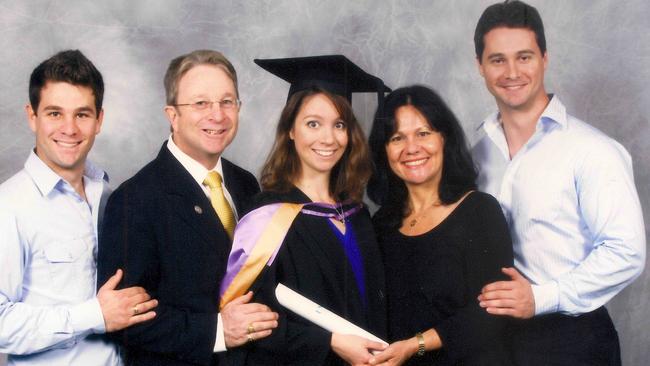
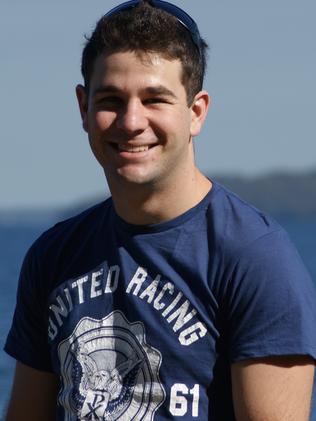
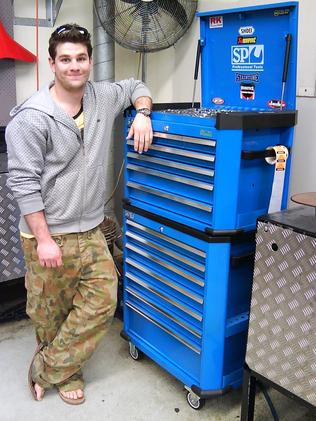
News.com.au is sharing Nathan’s story to kick off our campaign Take A Minute, Save A Life, a series of inspiring stories designed to encourage Aussies to become organ donors.
While Nathan used his driver’s licence to indicate his intentions, today the best way to ensure you are on the Australia Organ Donor Register is to sign up online. It only takes a minute.
Nathan had just returned from the holiday of a lifetime in New Zealand with his girlfriend Hannah, and was in the prime of his life — before it was all cut short.
“He had a passion for bikes since he was very young,” Mr Kinny said.
“He had just finished his apprenticeship and had become a motorbike mechanic.
“Unfortunately for him, he didn’t get that certificate; we got that after he died.”
Nathan died in RNS hospital on October 16, 2013. The only silver lining for the Kinnys was that Nathan was able to donate his lungs, kidneys and heart valves to others in need.
“Even without Nathan telling us he wanted to be a donor, you sort of put yourself in the shoes of someone who needs an organ donation,” Mr Kinny said.
“So I was thinking, we would love someone to have donated an organ so our child could survive — so the opposite applies as well.
“We were in a position to help other people.”
It was a decision that has continued to provide Nathan’s family with comfort.
“We know that he’s helped five people that we’re aware of,” Ms Kinny said.
“Someone has received his lungs, two people have received his kidneys, one of them a child. “A couple of people have received heart valves, one of them we were told was a baby.”
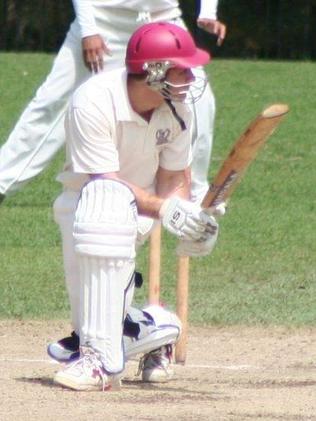
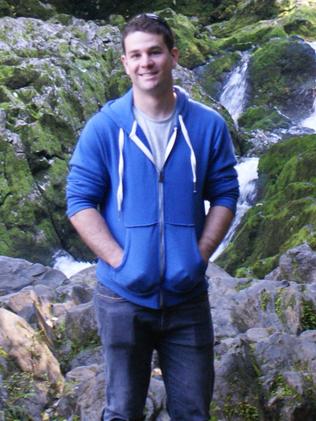
But the magnitude of their “devastating” loss lingers. For those who knew and loved Nathan, there’s a lot about him to miss, including his cheeky side.
“He was a joker … he loved puns and things,” Ms Kinny said.
“He’d be walking through his workshop with an exhaust pipe in his hand and would say, ‘Oh this job is so exhausting.’
“He was a happy, crazy sportsman — cricket, soccer, you name it — he put his all into everything.
“He was very strong, knew exactly what he wanted to do.”
Nathan was also a “very generous and kind person”, according to Ms Kinny.
“He loved his brother and his sister; they were very close,” she said.
“With Hannah, his girlfriend, he was very much committed and in love, and they’d plan their life and talk about kids.”
It’s the person Nathan was that always made his parents “very proud of him” but it’s his legacy that has impacted the lives of countless others.
“Out of something very sad and catastrophic, you need to focus on the good, and the good is that there are these people whose lives have been altered for the better,” Ms Kinny said.
“That’s an amazing thing to be remembered by.”
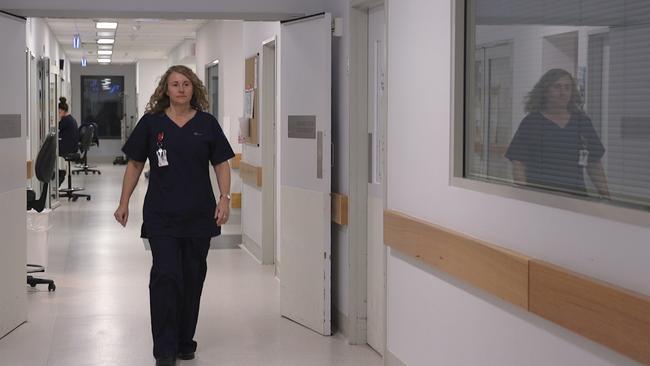
‘I SEE MYSELF AS AN END-OF-LIFE SPECIALIST’
RNS organ donor co-ordinator Jenny Holman, 51, supports families when “they’re going through the worst days of their lives”, as she did for the Kinnys.
“It’s often when their loved one has had a sudden and unexpected death and they’re starting to talk about organ donation,” Ms Holman said.
“My role is really to support them and give them accurate information so they can make an enduring decision about organ and tissue donation.
“Regardless of the decision they make. I really see myself as an end-of-life specialist.”
According to Ms Holman, there are countless “myths and misconceptions” about organ donation. It’s her job to clear those up.
“Some of the families that we care for think their loved one is too old (to donate organs),” she said.
“You’d be amazed: Some people well into their 80s are still able to donate their liver and their kidneys. And can you believe for eye tissue donors, 102 is the oldest in NSW that somebody donated their corneas.”
Ms Holman said many people she dealt with came to her believing that their loved one’s “past medical history” also ruled them out as donors.
“They’ll say ‘granny’s had cancer in the past, she couldn’t possibly be an organ donor’ but that’s not true,” she said.
“There are very few people that are actually excluded from being organ donors.”
According to the nurse, some people also believe organ donation is against their religion and subsequently don’t nominate themselves as a donor.
“All religions actually support organ and tissue donation,” Ms Holman said.
While there are thousands of patients on dialysis awaiting a kidney transplant in Australia alone, only a small number of people ultimately donate their organs. That’s partly because human organs can only be used if the person they originally belonged to dies in intensive care while on a ventilator.
“But tissue donation — corneas, heart valves and bone — is different,” Ms Holman said.
“Many more people can go on to be tissue donors because you don’t need to be in hospital for that.
“And later on this year, people will be able to donate skin as well, which will make a huge difference to the burns unit.”
Ms Holman’s job subjects her to some of the worst human suffering imaginable. But it’s the promise of a second chance at life for the many others who become recipients of organ donations that keeps her going.
“Often families will say to me it’s the only good thing to come out of the situation,” she said.
News.com.au is supporting organ donation during DonateLife Week, click here to read more




